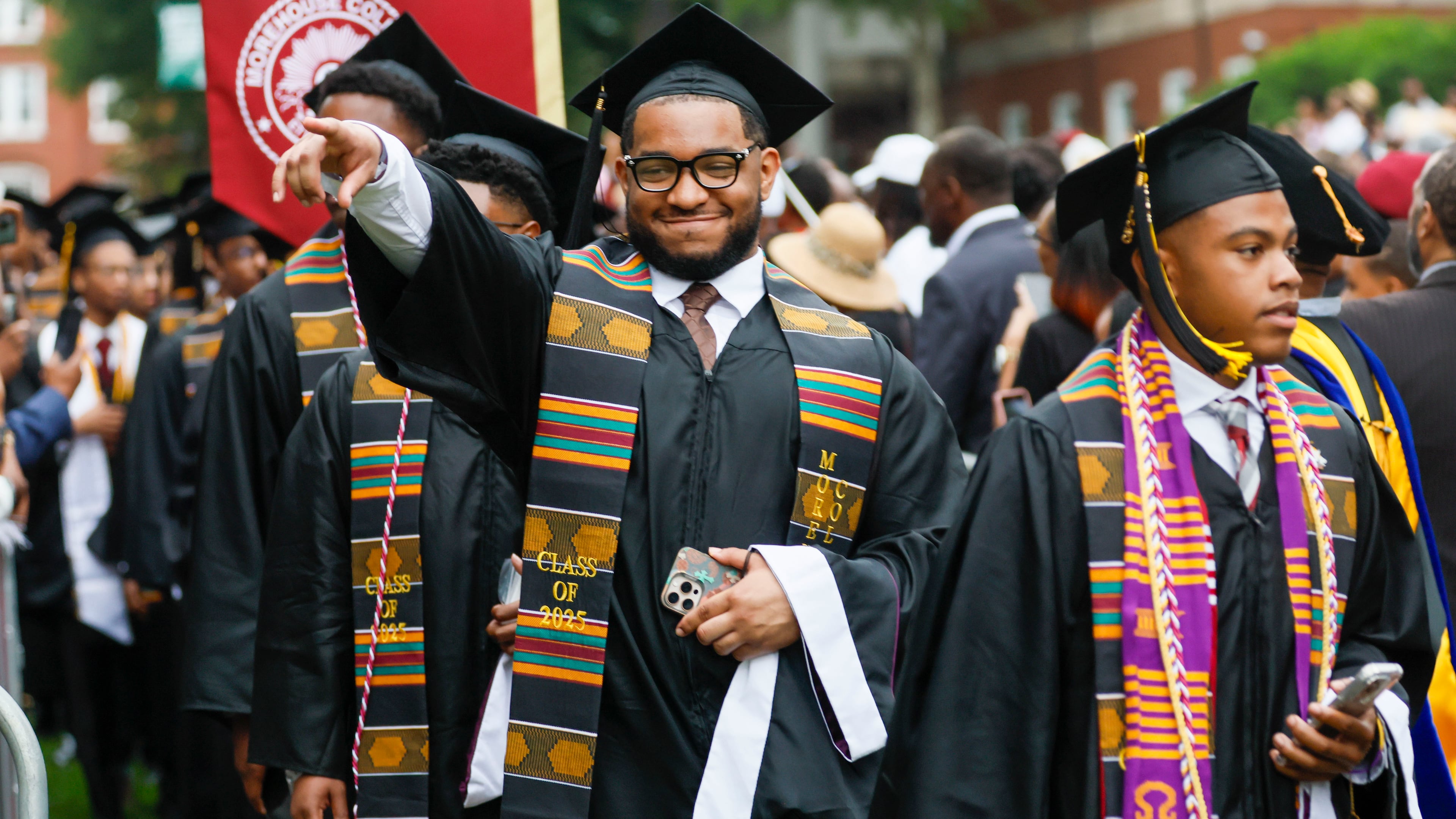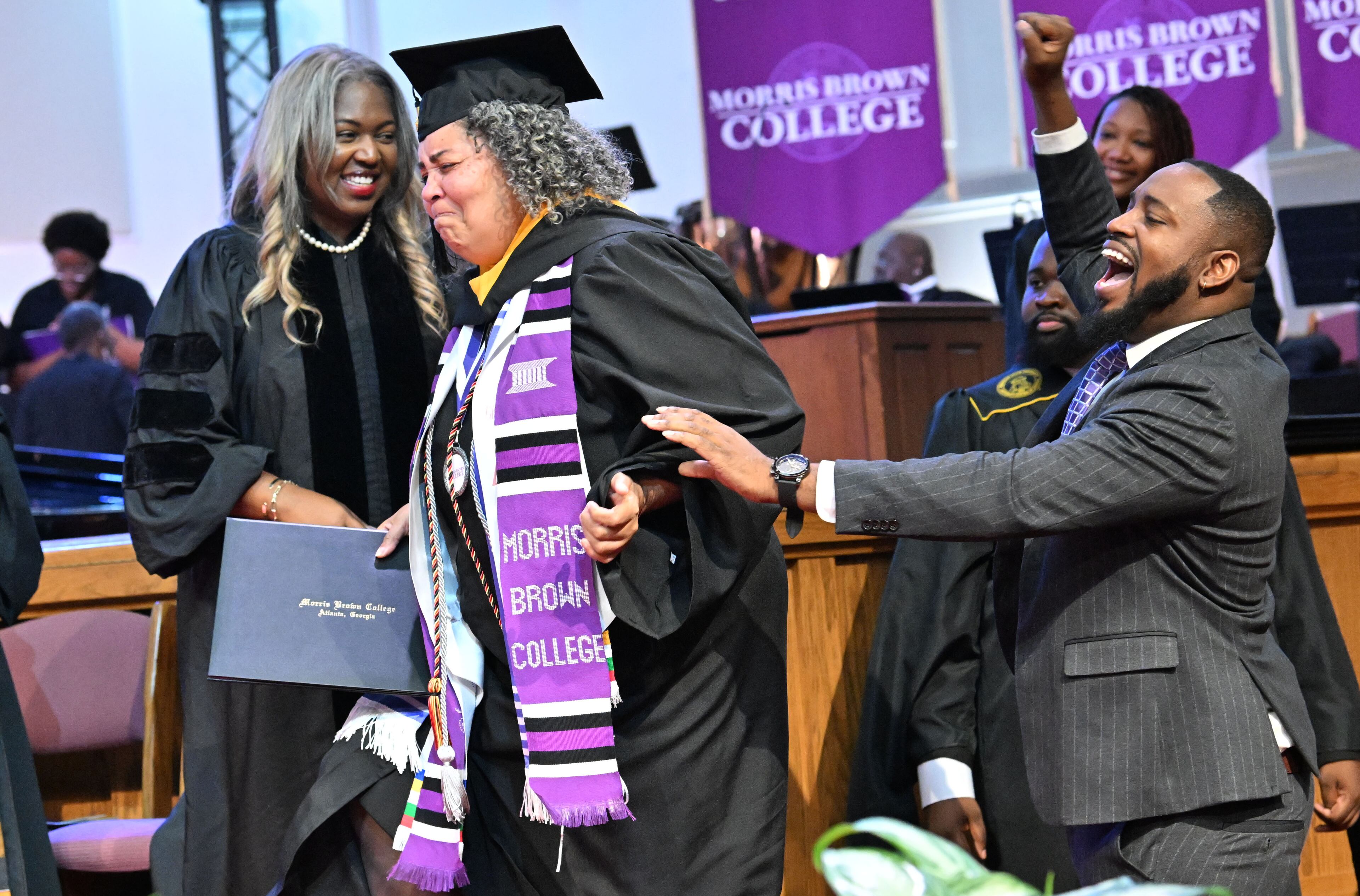Applications surge as more students strive for Atlanta HBCUs

Cam Breeden has been planning his college experience since the sixth grade.
For years, he thought he would go to an elite, predominantly white institution, envisioning himself at universities like Johns Hopkins or Duke. But the North Carolina native with a 4.3 grade-point average had a recent change of heart. He wanted to study at a place where he felt he could easily find community. So he turned his focus to historically Black colleges and universities.
“I perform best when I can work with people l know believe in me and when I believe in them,” said Breeden, who will be attending historically Black, all-men’s Morehouse College this fall. “I think that at Morehouse, Clark (Atlanta University) and Spelman (College) specifically, that kind of camaraderie and hope is very alive.”
Breeden is among the thousands of Black students nationally who are increasingly turning toward Atlanta’s HBCUs. Officials at the schools say the influx is a result, at least in part, of concerns about a political climate anathema to many Black students, and a desire to be in spaces where they feel safe and supported. Following the 2020 murder of George Floyd, the 2023 U.S. Supreme Court ruling overturning affirmative action, and conservative backlash against diversity equity and inclusion initiatives, more and more Black families are considering HBCUs. Leaders from several dozen HBCUs nationwide were in Atlanta this week, led by the United Negro College Fund, to discuss strategies that could strengthen their schools.
“I think there’s a shift in attitude among Black people,” said former Morehouse president David A. Thomas Jr. in January, months before announcing his retirement, “Where they much more see the value of having their children in an environment that embraces them and that doesn’t prompt them to question themselves.”
Morehouse saw a record-high 6,224 applications in 2025. At CAU, roughly 3,400 more people applied this year than last. Morris Brown College has been steadily increasing enrollment since regaining accreditation three years ago.
In 2022, Spelman received more than 13,000 applications, a record high. Because the small liberal arts college has limited space, it made a conscious effort to bring that number down, adding an essay to its application process and noting the school’s low acceptance rate (which has dropped from 53% to 24% since 2020). While application numbers have since leveled out, it appears interest in the school has not. Five years ago, 12% of students who were admitted to Spelman College ultimately enrolled. Last year, the number rose to 24%.
“In our business, that’s pretty substantial growth,” said Chelsea Holley, director of admissions at the all-women’s private school. “We do attribute that to how Black families are responding in these political times. A lot of it is about a safe space for their students, a space where they feel understood and supported.”

Counselors at predominantly white high schools are reaching out to Spelman, saying their African American students “really want to know about HBCUs,” said Holley. “We’re hearing those stories directly from (Black) families. Like, this has been my environment in high school, and I don’t want to feel how I feel here in college.”
Breeden said high-achieving Black students often find they are the only Black person in their college class or lab. “That’s your label and how your peers see you. You’re the Black guy,” he said. “But at an HBCU that’s nonexistent. You’re just another student. There’s more sense of equity.”
The affordability of Morris Brown and its recent marketing campaigns have helped the school boost enrollment. But, said president Kevin E. James, “The dismantling of DEI and other political constructs have also aided in the increase of interest of attending Black colleges.”

Even as applications to Morehouse have spiked, enrollment has stayed flat. The school has capacity for only so many students. That means higher standards for acceptance. In 2022, the admittance rate was 60%. It’s declined every year since, dropping to 33% for this fall.
Director of Admissions Michael Gumm said the college is actively pursuing the best and brightest African American males in the country, and that those students should strive for Morehouse.
“That should be the mindset of all Black men,” said Gumm. “That’s a very strong statement but one we drive home in our marketing. You should be thinking about Morehouse as Morehouse is thinking about you.”



